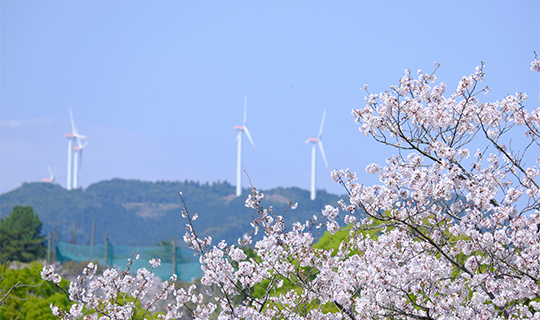
Doing business in Japan in 2025: Insights for Canadian exporters
Author details
Susan Redding
Senior international trade writer
In this article:
Amid the buzz about the emerging, high-growth markets in the Indo-Pacific, it can be easy to overlook Japan. While its growth trajectory has been slower than some of its neighbours, the island nation remains the fourth-largest economy in the world, and its population of 125 million ranks among the world’s wealthiest by per capita net worth. Japan is a global financial hub, an undisputed leader in technology and a pillar of stability in a rapidly changing world.
Japan’s business environment is highly developed and boasts many qualities that make it an exceptional place to do business, including:
- Long history of innovation
- Enviable infrastructure
- Strong commitment to the rule of law
- Robust educational standards and a highly skilled workforce
- Safe, clean cities
As new tariffs disrupt global trade patterns and geopolitical uncertainty rises, Japan is seeking to bolster trade connections with reliable partners to secure its supply chain in strategic sectors. Canada—a trusted ally with strong capabilities to deliver the goods Japan needs—fits the bill. With preferential market access provided by the Comprehensive and Progressive Agreement for Trans-Pacific Partnership (CPTPP), the time is right for Canadian exporters to take a fresh look at Japan.
Canada and Japan have a healthy trade relationship, with two-way trade totalling more than $36 billion annually. Canadian companies exported $14.9 billion in goods to Japan in 2024, making it our fourth-largest export market (Source: Haver Analytics, EDC Economics).
The CPTPP, which came into force on Dec. 30, 2018, has played a critical role in enhancing this bilateral relationship. Key benefits of the CPTPP for Canadian businesses include:
- Reduced tariffs on key Canadian imports into Japan, such as agriculture and agri-food, fish and seafood, industrial goods and forest products. Once fully implemented, 99% of tariff lines among CPTPP parties will be duty-free.
- Simplified temporary entry for Canadian professionals, making it easier for service exporters to do business in Japan.
- Being on equal footing with domestic suppliers when bidding for contracts with the Japanese government, thanks to the agreement’s government procurement provisions.
In addition to the CPTPP, the Canada-Japan Economic Partnership Agreement (EPA) enhances bilateral trade relations, aiming to further integrate the two economies.
Canada and Japan’s economic relationship is underpinned by strong diplomatic ties and a shared commitment to multilateralism and a rules-based international order. Japan is a key partner in Canada’s Indo-Pacific Strategy to boost trade, investment and engagement in the world’s fastest-growing region. With economic and political tensions growing in Asia and new tariffs impacting trade with the United States, Japan welcomes the support of allies, like Canada, to grow prosperity and stability in the region.
Building on this solid foundation, Export Development Canada (EDC) opened a new representation in Tokyo in 2024. Our in-market team is dedicated to creating new pathways for Canadian companies to do business in Japan and take full advantage of Canada-Japan trade opportunities.
“Japan is not only Canada’s fourth-largest trading partner, but also a vital gateway to the Indo-Pacific region,” explains Marc-André Séguin, EDC’s regional vice-president for East Asia and Oceania. “As a major business hub in Asia, Japan plays an increasingly important role in the evolving global trade landscape, particularly as trade dynamics shift with the U.S.”
“Japan’s efforts to diversify its trade partnerships present valuable opportunities for Canada, as we’re actively seeking to broaden our global trade relationships,” Séguin says.
You should also check out
Find out how export financing and insurance tools can help you access capital, manage risk and grow globally.
Last year was pivotal for the Japanese economy, thanks to rising wages and the end of the negative interest rate policy, originally implemented to encourage inflation in the stagnant economy. But 2025 brought new headwinds in the form of global trade uncertainty and the threat of increased U.S. tariffs.
The recent inking of a U.S.-Japan trade deal has eased tariff uncertainty for Japan. Susanna Campagna of EDC’s Economic and Political Intelligence Centre (EPIC) forecasts that Japan’s growth outlook remains very modest at under 1% over the next three years, due to ongoing global trade uncertainty and weak domestic demand.
“The Bank of Japan held rates steady at 0.5% in July, with expected continued caution on future hikes given the current global environment,” says Campagna. “Japan’s aging and shrinking population—alongside an ongoing labour shortage in certain sectors—are also constraints for businesses to grow and expand.”
What does this mean for Canadian exporters and investors? Despite the challenges, Campagna sees potential in the Japanese market.
“Japan is the world’s fourth-largest economy and remains heavily reliant on a range of imports, particularly for its food and energy needs,” she says. “We expect a return to real wage growth by latter 2025, and the trend of Japanese consumers, businesses and investors seeking out innovative products and services to make their economy greener, more efficient and secure will continue to drive demand.”
These factors support a range of export and investment opportunities in Japan for Canadian exporters.
“Canada has much to offer Japan—from agri-food and critical minerals to clean technologies and digital innovation. Japan is a strategic partner not only as a buyer of Canadian products and services, but also as an investor in key sectors of the Canadian economy, including automotive, advanced manufacturing, energy and infrastructure,” says Séguin.
You should also check out
With growing risks, Canadian companies face new challenges. EDC’s Global Economic Outlook offers insights to help you make better business decisions.
Agri-foods
Japan is the second-largest global net food commodity importer. Ensuring a stable and resilient food supply is a national priority. Canada is a leading exporter of high-quality, safe and sustainable agri-food products. This positions Canada as an attractive partner for Japan, a country that places a high premium on food safety, sustainability and innovation in agricultural products.
Canadian agri-food products, including grains, meats, fish and seafood products, are highly valued in the Japanese market for their quality and the environmental stewardship demonstrated by Canadian producers. Demand is also growing for ready-to-eat meals and packaged foods.
The CPTPP has streamlined the agri-food trade channel by reducing tariffs on Canadian agri-food products, giving Canadian imports a competitive edge in the Japanese market. The Japan-Canada Organic Equivalency Arrangement facilitates the smooth export of Canadian organic goods into the market. Alongside agri-foods, agri-tech solutions are welcome in a market where land is at a premium. Canadian agri-tech companies are at the forefront of innovation, developing technologies that are sought after in Japan to address challenges such as food security and sustainable farming practices.
Cleantech
Both Japan and Canada have thriving clean technology sectors and opportunities exist to develop closer integration of the industry through supply chain partnerships and joint research ventures. For example, Canada’s advancements in hydrogen fuel technology complement Japan’s commitment to green energy, highlighting a potential area for expansive collaboration. Japan is also a promising market for Canadian cleantech innovations related to biofuels, plastic recycling and energy efficiency. Many Canadian cleantech investors view Japan as a safe haven for new investments in this crucial sector, compared to Asia’s higher-risk markets.
Critical minerals
Canada is uniquely positioned to lead in the global critical minerals supply chain. With abundant resources, a strong mining ecosystem and a reputation for responsible business practices, we have what it takes to become a secure and sustainable supplier to the world.
Supported by their government, Japanese companies and the main trading houses (sogo shosha in Japanese), are actively seeking to secure their procurement of critical minerals. Their needs and strategy align with Canada’s critical minerals agenda for two main reasons:
- Canada extracts critical minerals and welcomes investors from friendly nations, like Japan, in this strategic sector.
- Canadian mining expertise has a great reputation globally, and Japanese companies in the sector welcome our involvement in mining projects in other regions, like Latin America, where they have investments.
In 2023, Canada and Japan released a Memorandum of Cooperation (MOC) about the establishment of “sustainable and reliable global battery supply chains from upstream to downstream in Canada and Japan,” including critical minerals. While non-legally binding, the MOC demonstrates our shared commitment to co-operation in this important sector.
Automotive
Japan and Canada are long-standing partners in the automotive sector. As the industry shifts to hybrid and electric vehicles (EV) as part of the green transition, there are opportunities to strengthen and expand the relationship. Canadian capabilities in battery technology and sustainable materials complements Japanese expertise in automotive manufacturing, opening pathways for joint ventures in the sector.
Health and life sciences
Japan has the world’s second-highest median age, so it’s no surprise that its market for pharmaceuticals and medical devices is robust. Demand for products and innovations in these fields, along with digital health technologies, present Canadian companies with strong opportunities for licensing, foreign direct investment (FDI) and science, technology and innovation (STI). New health-tech solutions, including robotic parts, are also welcome in this market, where innovation is celebrated.
Additional sectors of opportunity
Advanced technology: Due to rising tensions in the region, chipmakers are de-risking their supply chains by building up manufacturing capacity in Japan.
Forestry: As its aging population shrinks the available workforce, Japan’s forestry sector is in the market for new, productivity-boosting technologies.

- Japanese business culture is formal and hierarchical. Wear a suit for meetings, bring business cards to exchange and address the most senior associate in the room first.
- Say yes if your host offers tea and snacks during your meeting. Declining such gestures of hospitality will be considered rude.
- Japanese culture places a high value on personal bonds. Once a relationship is established, Japanese companies tend to be extremely loyal to their trading partners.
- Hiring translators and cultural advisors for your first visit can help you navigate the Japanese business world.
- Plan to make frequent visits to Japan and invest considerable time building bonds, especially during the initial stages of your business encounters.
You should also check out
Read this Export Development Canada overview on etiquette style in this key market.
Some of the biggest barriers in Japan for Canadian businesses include:
- Complicated and lengthy business processes
- A complex regulatory environment
- Managing logistics in a distant market
- Strong competition from domestic and foreign suppliers
- Language and cultural differences
Succeeding in Japan takes patience. Engaging a local partner who speaks Japanese and understands local traditions, norms and processes is key when breaking into the market. Your in-market partner can also help you build and maintain your relationships with Japanese businesses over the long term.
Export Development Canada
EDC is part of the Government of Canada’s trade ecosystem of experts available to help you save time, learn more about your target markets and identify the capital you need to grow.
As part of EDC's Indo-Pacific strategy, we're helping Canadian companies diversify into new markets and succeed in this dynamic region. Our experienced team is available to offer the industry insights, knowledge and tools you need to succeed in Japan.
“Building long-term relationships is fundamental in Japan. They require time and trust, but once established, they become stable and enduring. We’re committed to strengthening these ties and working alongside Team Canada to expand Canada’s trade and investment footprint in Japan,” says Séguin.
EDC also offers:
- A full suite of trade credit insurance products to lower your risk for doing business abroad
- Support with getting access to working capital
- Expertise to enable you to learn more about international markets
- Connections to international companies in need of your products and services
Learn more about how EDC’s financial and knowledge solutions can help you understand the opportunities in your target market and make exporting less risky. To contact an EDC export advisor, visit our Export Help Hub.
Trade Commissioner Service (TCS)
Canada’s TCS has a team of approximately 50 trade professionals stationed in Tokyo, Sapporo and Osaka. With specialized knowledge of key sectors, they excel at forging relationships with associates who can help Canadian companies do business in Japan.
Provincial trade offices and the Canadian Chamber of Commerce
The governments of Alberta, British Columbia, Ontario, Québec and Saskatchewan have trade offices in Japan to promote investment opportunities and support exporters. Canadian businesses can also connect with the Canadian Chamber of Commerce in Japan, which has been in the market for almost 50 years and offers extensive knowledge of the business landscape.
Interested in growing your business in Japan and the Indo-Pacific?
Connect with EDC and watch your business flourish on the international stage.
Answer a few questions about your company to learn more about how EDC can help you plan, connect and fuel your expansion in the Indo-Pacific.
Frequently asked questions about how to export to Japan
Q: What are the top export sectors for Canada in Japan?
Agri-foods, cleantech, critical minerals, automotive and life sciences.
Q: Is Japan a good market for Canadian exporters in 2025?
Yes. Despite slow growth, Japan offers stability, high demand for imports and strong trade ties with Canada.
Q: What cultural tips should I know before doing business in Japan?
Formality, relationship-building and respect for hierarchy are key. Hiring a local advisor is recommended.
EDC’s Export Help Hub provides expert answers to the most frequently asked trade-related questions. Create a free MyEDC account for the answers to these questions about Japan and ask an advisor a question of your own.
Question 1: I’m considering selling my products in Japan. What do I need to know?
Question 3: How can I support my business expansion in Japan through intellectual property protection?


















